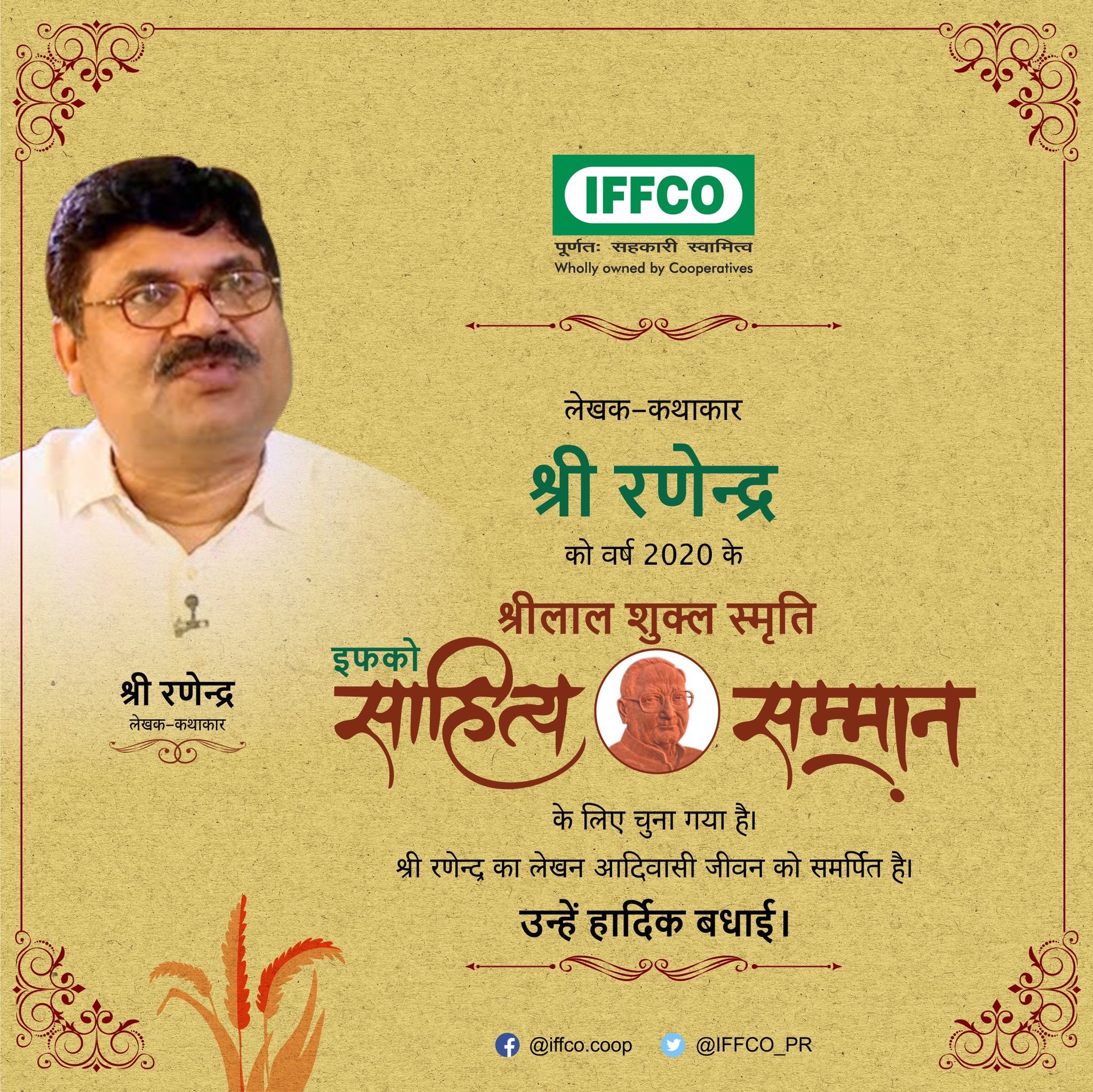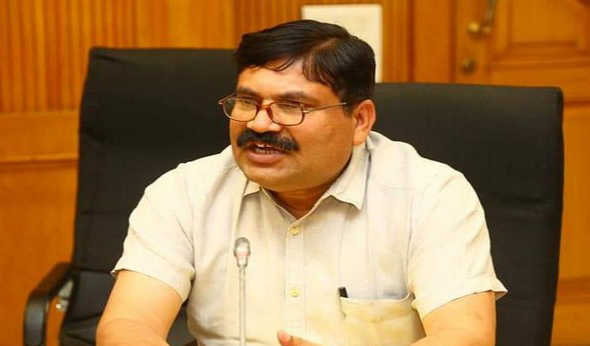IFFCO has named Shri Ranendra as the winner of the Srilal Shukla Smiriti IFFCO Sahitya Samman for the year 2020. The announcement has led to a flood of congratulations for Shri Ranendra on social media late Saturday evening.
Shri Ranendra will get the award in January as the function is generally organized on 31st January. Due to Covid-19 there may be some changes this time. The function will likely be organized virtually. The Award consists of a citation, a memento and Rs 11 lakh cash prize.
Those in the selection committee included renowned critic Nityanand Tiwari, senior narrator Chandrakanta, poet-journalist Vishnu Nagar, writer Prof Ravi Bhushan, senior critic Murali Manohar Prasad Singh, and senior poet Dr Dinesh Kumar Shukla.
Congratulating Shri Ranendra, IFFCO MD tweeted “It’s a great pleasure to inform you all that Shri Ranendra whose writings on tribal life is the winner of this year’s Srilal Shukla Smiriti IFFCO Sahitya Samman. In IFFCO, we also encourage literature and art”.


Ranendra first came into the limelight through his debut novel ‘Global Gaon ke Devta’. In this, the author has introduced a new perspective of looking at the tribal society. His second novel ‘Gayab hota Desh’ depicted the struggle of the ‘Munda’ tribe. Through his works, Ranendra has raised questions related to illiteracy, poverty, unemployment, displacement, infiltration, female exploitation, religious-linguistic identity.
The IFFCO Literary award was started in 2011 in the name of the famous litterateur Sri Lal Shukla and is given every year for outstanding writings on life in the countryside. Srilal Shukla was a versatile writer who portrayed the life of rural as well as semi-urban areas in its totality and made a scathing attack on the exploitative system prevailing in the countryside. His book Rag Darbari remains a sensation till date.
Vidyasagar Nautiyal, Shekhar Joshi, Sanjeev, Mithileshwar, Ashtabhuja Shukla, Kamalakant Tripathi, Ramdev Dhurandhar, Ramdhari Singh ‘Diwakar’ and Mahesh Katare had been the recipients of the award in the past.













































